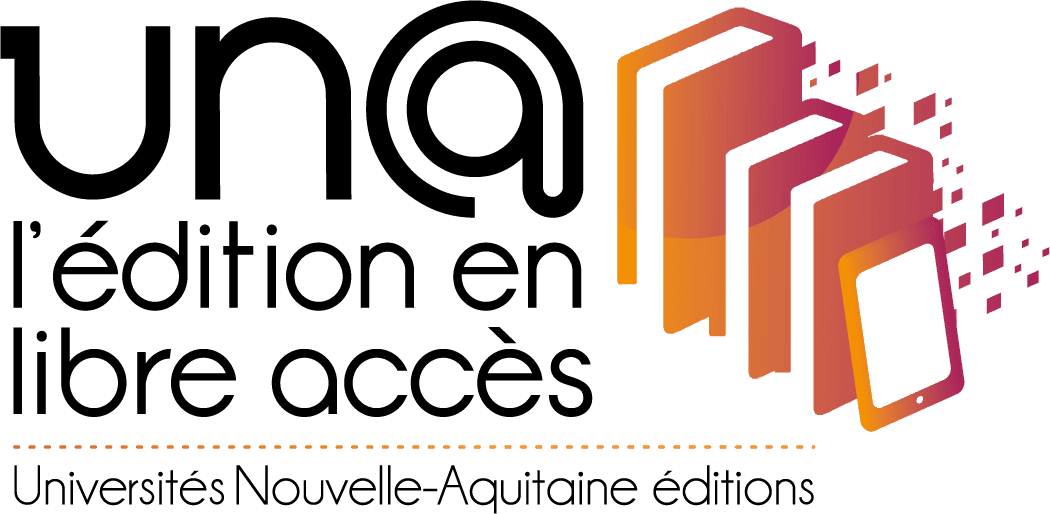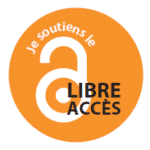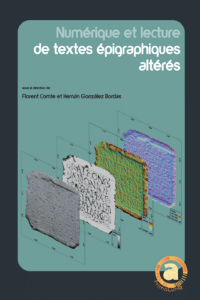UN@ est une plateforme d'édition de livres numériques pour les presses universitaires de Nouvelle-Aquitaine
Auteur : Eleni Bozia

Department of Classics,
Dauer Hall Rm. 134
University of Florida,
P.O Box 117435
Gainesville, FL 32611
USA
bozia@ufl.edu
0000-0002-6210-461X
Eleni Bozia
Dauer Hall Rm. 134
University of Florida,
P.O Box 117435
Gainesville, FL 32611
USA
bozia@ufl.edu
0000-0002-6210-461X
Eleni Bozia
Professor Eleni Bozia is an Associate Professor of Classics and Digital Humanities at the University of Florida. She studies linguistic and cultural diversity in Imperial Greek and Latin literature and its intersection with modern globalism. Co-founder and the Associate Director of the Digital Epigraphy and Archaeology Project, an international consortium for the digitization of historical artifacts, she promotes the collaboration between the humanities and the sciences. Bozia is also a pioneer in applying AI to the humanities and is the Founder and Head of the Data-Driven Humanities Research Group.
Bozia holds two doctoral degrees: a Ph.D. in Classical Studies (University of Florida, 2009) and a Dr. Phil. in Digital Humanities (Universität Leipzig, 2018). Her work has been supported by the National Endowment for the Humanities and the Andrew W. Mellon Foundation and has been recognized with several awards, including the Young Researcher Scholarship from La Fondation Hardt in Geneva and the Mary A. Sollman Scholarship from the American Academy in Rome.
She is the author of the books Lucian and his Roman Voices: Cultural Exchanges and Conflicts in the Late Roman Empire (Routledge: New York and London, 2015) and Politics of Language: Foreign Nativeness and Identity in the Roman Empire (Bloomsbury Academics, forthcoming). She is also the co-editor of Beyond the Standards: Attic, Koine, and Atticism (Brill, forthcoming) and Multilingual literary practices in a multicultural world, from Archaic Greece to the Byzantine Empire (Brill, forthcoming). She has published widely and delivered talks on identity, otherness, and belonging in literature, digital humanities and AI, and the digital preservation of world heritage.
Professor Bozia is a TEDx speaker and a guest in the Podcast Series Beyond the Podium and Beyond the Talk TEDx UF.
Selected bibliography
Op-ed editorials
- What a second-century Roman citizen, Lucian, can teach us about diversity and acceptance. (Conversation US)
- Lo que un ciudadano romano del siglo II, Luciano, puede enseñarnos sobre diversidad y aceptación. Dialektika (Republication of the Conversation US piece)
Books
- Politics of Language: Foreign Nativeness and Identity in the Roman Empire. Bloomsbury Academic: London. (Forthcoming)
- Lucian and his Roman Voices: Cultural Exchanges and Conflicts in the Late Roman Empire. Routledge Monographs in Classical Studies. Routledge: New York and London, 2019. (paperback-reprint)
- Bozia, K. Bentein (eds). Multilingual literary practices in a multicultural world, from Archaic Greece to the Byzantine Empire. Journal of Literary Multilingualism 4. Brill: Leiden (Forthcoming 2025)
- Bozia, R. Machado, C. Monaco (eds.). Beyond the Standards: Attic, Koiné, and Atticism. Euhormos: Greco-Roman Studies in Anchoring Innovation. Brill: Leiden (Forthcoming)
- E. Bozia, E. Anderson, A. De Simoni, A. Pantazopoulou, K. Silverman, A. Smith (eds.) 2022. Selected Proceedings of the 2nd and 3rd Classics Graduate Student Symposia at the University of Florida. UF Smathers Libraries Press.
Articles
- Bozia, E. 2023. “2nd-century Lexicography: genre or a literary current of languages, politics and social dynamics?” In M. Hillen and N. Bruno (eds.) Lexicographer and Lexicography. Critical Studies and New Perspectives from Antiquity to the Present. Trends in Classics Vol. 1. De Gruyter. https://doi.org/10.1515/tc-2023-0003
- Bozia. 2023. “A classical studies pedagogy for the future: An introspective look.” In McHardy, F., Libatique, D. (eds.) Diversity and Study of Antiquity in Higher Education. Classical Pedagogy in the 21st century. New York and London: Routledge. https://doi.org/10.4324/9781003278016-6
- Bozia, E. 2023. “‘Please, touch the exhibits’: 3D archaeology for experiential spatialization.” In G. Landeschi and E. Betts (eds.) Capturing the senses: digital methods for sensory archaeologies. Quantitative Methods in Social Science and the Humanities. Springer. https://link.springer.com/book/10.1007/978-3-031-23133-9#about-this-book
- Amin, M., Barmpoutis, A., Berti, M., Bozia, E., Hensel, J., Naether, F. 2023. “The Digital Rosetta Stone project.” In Ancient Egypt, New Technology: The Present and Future of Computer Visualization, Virtual Reality and other Digital Humanities in Egyptology, R. Lucarelli, J. Roberson, and S. Vinson (ed.), Harvard Egyptological Studies, vol. 17, March, 2023, pp. 58-84. Brill. https://doi.org/10.1163/9789004501294
- Bozia, E. 2022. “Lucian and Juvenal within the Imperial Weltliteratur.” In G. Blanc, F. Galtier, R. Poignault (eds.) Présence de Juvénal. Caesarodunum LIV-LV bis, Clermont-Ferrand, 2022: 20226.
- Bozia, E. 2021. “Classical Studies for the New Millenium.” In S. Feuser and K. Wesselmann (eds.) Teaching Classics in the Digital Age. Universität zu Kiel. https://dx.doi.org/10.38072/2703-0784/p23
Additional contents
3D Data Acquisition and Dissemination
University of Florida, mars 2018 (©UFlibraries).
The Digital Rosetta Stone
British Museum, juillet 2021 (©Risolviamo).
The Digital Epigraphy and Archaeology Project
Digital Classicist, London, juillet 2014 (©Digital Classicist London Seminars).
Digital Classical Studies: unearthing the metalanguage of ancient sources »
Umeå, Sweden, London, mars 2017 (©Umea Universitet).
2000 years ago has never felt closer
University of Florida, avril 2022 (©UF Center for Undergraduate Research).
The Diversity Statement, juin 2022 (©WCC Classics).
TEDx-Bozia
How to predict the future with Classics and AI, août 2023 (©TEDx Talks).
“AI in Humanities Research, Curriculum, and Beyond” Beyond the Podium Podcast Series, the Center for Teaching Excellence. , mai 2023 (©Beyond the Podium Podcast).
Mots clés
digital epigraphy, digital squeeze, 3D printing, augmented reality, preservation, dissemination, photogrammetry
Over the past decade, archaeology and epigraphy have been reconsidering their modus operandi. Prompted and facilitated by technological advances, motivated by new research questions, and challenged by growing calls to engage with contemporary audiences,…


